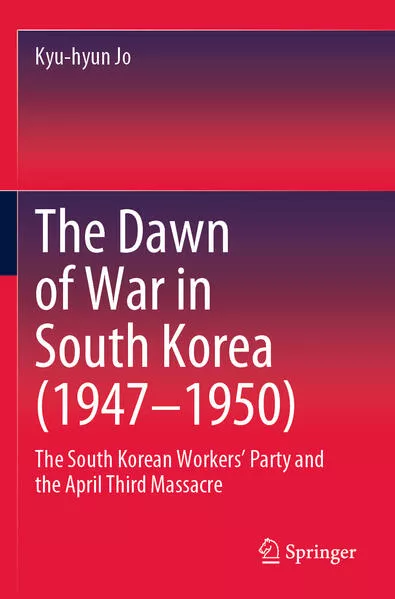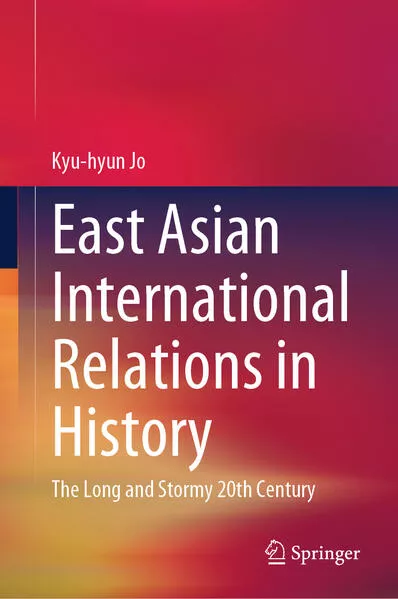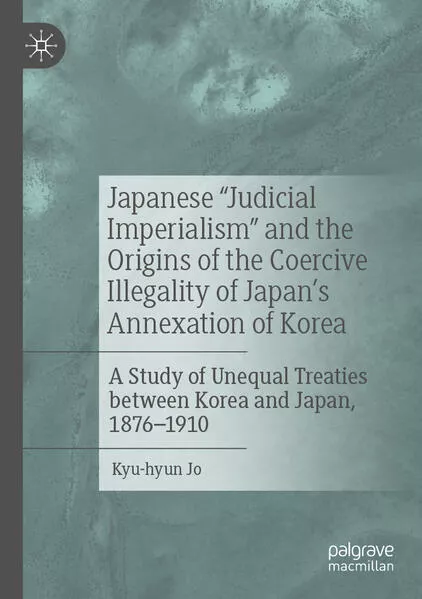
- Publikationen ca: 8
- Buchbewertungen ca: 2
- Fragen & Antworten
Kyu-hyun Jo
Holding a PhD from the University of Chicago, Kyu-Hyun Jo was a Research Associate at the Northeast Asian History Foundation in Korea from 2020 to 2021 and is currently a lecturer in Political Science at Yonsei University, where he teaches Korea and East Asian international relations and history.
The Dawn of War in South Korea (1947–1950)
This book offers an analytical account of the April Third Massacre in Korea, a bloody confrontation between supporters of the Syngman Rhee Administration and those suspected (largely incorrectly) of being Communists, or members of the South Korean Workers' Party—the second largest Communist Party after Korea's liberation from Japanese colonial rule.
East Asian International Relations in History
This book provides a sweeping overview of East Asian international relations in history from the nineteenth century onwards, with a focus on Korea and its relationship with East Asia and the USA. In contrast with many books which concentrate exclusively on the twentieth century, this book offers a long-term perspective on modernity and modernization in East Asia.
East Asian International Relations in History
This book provides a sweeping overview of East Asian international relations in history from the nineteenth century onwards, with a focus on Korea and its relationship with East Asia and the USA. In contrast with many books which concentrate exclusively on the twentieth century, this book offers a long-term perspective on modernity and modernization in East Asia.
Japanese "Judicial Imperialism" and the Origins of the Coercive Illegality of Japan's Annexation of Korea
This book explores the legacy of the Japanese empire in Korea, asking how colonialism arose as a legal idea. What was the legal process behind the establishment of colonialism as Japan's prime strategy towards Korea since the late 19th century? By addressing such questions, it is not only possible to address how Japanese colonialism in Korea was born, but also address how the process behind the making of colonialism as a judicial and legal project was illegal from its origination.
The Dawn of War in South Korea (1947–1950)
This book offers an analytical account of the April Third Massacre in Korea, a bloody confrontation between supporters of the Syngman Rhee Administration and those suspected (largely incorrectly) of being Communists, or members of the South Korean Workers' Party—the second largest Communist Party after Korea's liberation from Japanese colonial rule.
The Dawn of War in South Korea (1947–1950)
This book offers an analytical account of the April Third Massacre in Korea, a bloody confrontation between supporters of the Syngman Rhee Administration and those suspected (largely incorrectly) of being Communists, or members of the South Korean Workers' Party—the second largest Communist Party after Korea's liberation from Japanese colonial rule.
Japanese "Judicial Imperialism" and the Origins of the Coercive Illegality of Japan's Annexation of Korea
This book explores the legacy of the Japanese empire in Korea, asking how colonialism arose as a legal idea. What was the legal process behind the establishment of colonialism as Japan's prime strategy towards Korea since the late 19th century? By addressing such questions, it is not only possible to address how Japanese colonialism in Korea was born, but also address how the process behind the making of colonialism as a judicial and legal project was illegal from its origination.
Japanese "Judicial Imperialism" and the Origins of the Coercive Illegality of Japan's Annexation of Korea
This book explores the legacy of the Japanese empire in Korea, asking how colonialism arose as a legal idea. What was the legal process behind the establishment of colonialism as Japan's prime strategy towards Korea since the late 19th century? By addressing such questions, it is not only possible to address how Japanese colonialism in Korea was born, but also address how the process behind the making of colonialism as a judicial and legal project was illegal from its origination.







